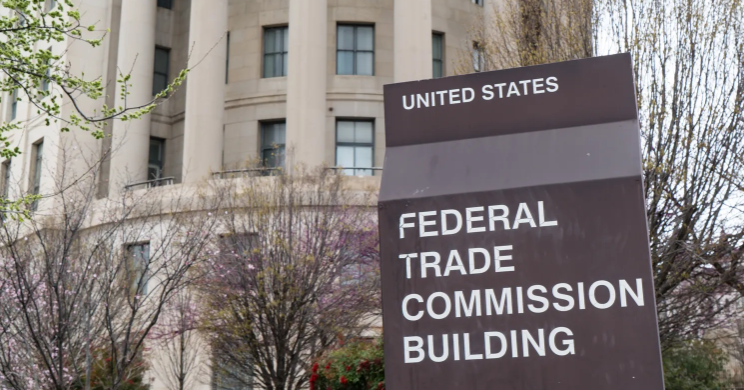Trump Fires FTC Commissioners Who Stole from Americans
By Jason Cardiff
March 19, 2025
President Donald J. Trump just did what needed to be done. He fired two corrupt Federal Trade Commission (FTC) Commissioners, Alvaro Bedoya and Rebecca Kelly Slaughter, who spent years abusing their power, ignoring the law, and stealing billions from American businesses. If you don’t believe the president had every right to fire them, then read the 9-0 Supreme Court decision against the FTC in FTC v. AMG Capital Management—a ruling that exposed the agency’s fraud and regulatory overreach. The backlash from Democrats is predictable, but the real scandal is how long these unelected bureaucrats were allowed to operate outside their legal authority. Their removal wasn’t just justified—it was long overdue.
The Hypocrisy of Slaughter and Bedoya
Slaughter and Bedoya now claim that the president didn’t have the authority to fire them, citing the "plain language" of the law. But where was their concern for the plain language of the law when they were violating it to destroy businesses, shut down livelihoods, and unlawfully extract billions of dollars? The hypocrisy is staggering.
These commissioners ignored the clear limits of Section 13(b) of the FTC Act. In 2021, the Supreme Court ruled in AMG Capital Management, LLC v. FTC that the FTC had no authority to demand monetary restitution under this provision. It was a unanimous ruling, leaving no room for doubt. And yet, Slaughter and Bedoya continued to pursue monetary penalties, trampling over the law and Supreme Court precedent like it didn’t exist.
They Stole Billions—Without Legal Authority
Let’s be clear: under their leadership, the FTC unlawfully extracted billions from businesses. This was not just regulatory overreach; it was outright government-sanctioned theft. The agency, under Slaughter and Bedoya’s watch, issued asset freezes and reserve seizures without proper legal authority, devastating countless businesses and individuals who had no legal recourse. These actions, done under the false pretense of consumer protection, amounted to unconstitutional takings—something the Supreme Court explicitly ruled against in AMG Capital Management, LLC v. FTC (2021).
If any private citizen had taken money under false legal pretenses, they’d be in prison for fraud. Yet, because these were government officials operating under the shield of bureaucracy, they were allowed to persist in their unlawful practices unchecked—until now. The financial destruction they left in their wake is not just an abstract legal debate; it represents real lives upended, homes lost, and businesses shuttered. Their reckless disregard for legal authority made their removal not just a political necessity but a moral imperative.
Justice Stephen Breyer, in the AMG ruling, spelled out exactly why the FTC had no authority to do what Slaughter and Bedoya continued to push: Section 13(b) was meant for injunctions, not financial penalties. Yet these commissioners acted as if they had a blank check to drain businesses dry. They had no problem disregarding judicial rulings and the law when it served their agenda.
The Need for Accountability
The broader outrage over their firing exposes Washington’s deep-rooted corruption. The same people who are now crying about “agency independence” had no issue with these commissioners weaponizing the FTC to impose financial penalties they had no legal right to demand. Their removal restores accountability. Regulatory agencies are not above the law, and unelected bureaucrats do not get to act as kings.
Slaughter and Bedoya’s removal also serves as a warning: government officials cannot operate with impunity. The FTC’s credibility was already in shambles after years of judicial rebukes. Keeping these commissioners in place would have further eroded trust in regulatory institutions.
The President Had Every Right to Fire Them
Some critics have pointed to Humphrey’s Executor v. United States (1935) as a barrier to firing FTC commissioners. But that ruling applies only when commissioners are lawfully executing their duties. Slaughter and Bedoya were not. Their tenure was marked by a brazen disregard for Supreme Court precedent, a refusal to abide by statutory constraints, and an aggressive overreach of their authority. Their blatant defiance of AMG Capital Management, LLC v. FTC (2021), which explicitly curtailed their ability to impose monetary penalties under Section 13(b) of the FTC Act, made them unfit for continued service.
The principle established in Humphrey’s Executor was never meant to protect government officials who act in bad faith or disregard judicial rulings. The decision was rooted in the need for independent agencies to function free from arbitrary political influence—but independence does not mean immunity from accountability. Slaughter and Bedoya demonstrated a pattern of exceeding their statutory limits and engaging in legally dubious actions that resulted in billions in unlawful penalties imposed on businesses. Their actions went beyond policy decisions; they represented a fundamental failure to uphold the law.
In this context, President Trump’s decision to remove them was not only justified but necessary to restore order and legitimacy to the FTC. Regulatory agencies must function within their prescribed boundaries, and when officials refuse to do so, the executive branch has both the authority and the obligation to act. Slaughter and Bedoya’s removal is a clear signal that regulatory abuse will not be tolerated, and it reaffirms that no government official—regardless of their position—is above the law.
A Step in the Right Direction
The bottom line is this: Trump’s decision to fire these two commissioners was a victory for the rule of law. Their actions were indefensible, their hypocrisy blatant, and their authority long overstretched. Regulatory agencies must function within their legal boundaries. No government official should have the power to financially ruin businesses without clear statutory backing.
The FTC should take this as a wake-up call. The days of unchecked regulatory overreach are ending. Moving forward, any government official who believes they can ignore the law with impunity should remember what happened to Slaughter and Bedoya—because they’ll be next.



